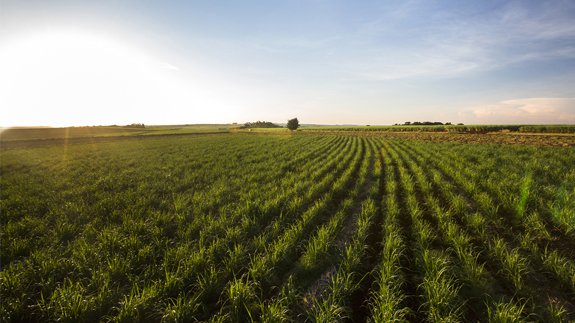Bioenergy can support food security, countering the “fuel vs food” argument that biofuels contribute to world hunger.
Siwa Msangi, Senior Research Fellow at the International Food Policy Research Institute (IFPRI) told ELN farmers in developing nations can produce reliable sources of fuel and food from one crop, known as a flex crop.
Brazilian farmers crush sugarcane to create sugar (food) and ethanol (fuel), with waste pulp providing further electricity when it is burned. They can grow 90 tons per hectare and alter production to match food demand or fuel market prices.
Mr Msangi said: “You need to pick a type of crop that is highly productive [with a] well established value chain for its processing and distribution.”
The IFPRI report comes amid concerns fields of plants for biofuel production are taking the place of essential food crops.
It states too often farmers choose “quick and cheap” crops that are ultimately a waste of resources. Education and initial investments are needed so farmers know which plants will work and can get access to them.
Mr Msangi added: “Subsidies should be aimed at the processors themselves to at least get them over the hump of the initial investment. Long term subsidies tend to skew incentives and undermine the types of competitiveness you need for long term efficiency.”
He believes land is often not the limiting factor of production – soil fertility is. Investments in proper cultivation techniques and surrounding education could mean a lasting supply of both fuel and food for developing communities.





